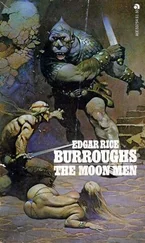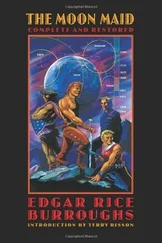Edgar Burroughs - The Red Hawk
Здесь есть возможность читать онлайн «Edgar Burroughs - The Red Hawk» весь текст электронной книги совершенно бесплатно (целиком полную версию без сокращений). В некоторых случаях можно слушать аудио, скачать через торрент в формате fb2 и присутствует краткое содержание. Жанр: Боевая фантастика, на английском языке. Описание произведения, (предисловие) а так же отзывы посетителей доступны на портале библиотеки ЛибКат.
- Название:The Red Hawk
- Автор:
- Жанр:
- Год:неизвестен
- ISBN:нет данных
- Рейтинг книги:3 / 5. Голосов: 1
-
Избранное:Добавить в избранное
- Отзывы:
-
Ваша оценка:
- 60
- 1
- 2
- 3
- 4
- 5
The Red Hawk: краткое содержание, описание и аннотация
Предлагаем к чтению аннотацию, описание, краткое содержание или предисловие (зависит от того, что написал сам автор книги «The Red Hawk»). Если вы не нашли необходимую информацию о книге — напишите в комментариях, мы постараемся отыскать её.
The Red Hawk — читать онлайн бесплатно полную книгу (весь текст) целиком
Ниже представлен текст книги, разбитый по страницам. Система сохранения места последней прочитанной страницы, позволяет с удобством читать онлайн бесплатно книгу «The Red Hawk», без необходимости каждый раз заново искать на чём Вы остановились. Поставьте закладку, и сможете в любой момент перейти на страницу, на которой закончили чтение.
Интервал:
Закладка:
They wear a white blouse and breeches of cotton woven by their slaves and long, woolen cloaks fabricated by the same busy hands. Their women help in this work as well as in the work of the fields, for the Kalkar women are no better than slaves, with the possible exception of those who belong to the families of the Jemadar and his nobles. Their cloaks are of red, with collars of various colors, or with borders or other designs to denote rank.
Their weapons are similar to ours, but heavier. They are but indifferent horsemen. That, I think, is because they ride only from necessity and not, as we, from love of it.
That night, after dark, we came to a big Kalkar camp. It was one of the camps of the ancients, the first that I ever had seen. It must have covered a great area and some of the huge stone tents were still standing. It was in these that the Kalkars lived or in dirt huts leaning against them. In some places I saw where the Kalkars had built smaller tents from the building materials salvaged from the ruins of the ancient camp, but as a rule they were satisfied with hovels of dirt, or the half fallen and never repaired structures of the ancients.
This camp lies about forty-five or fifty miles west of the battlefield, among beautiful hills and rich groves, upon the banks of what must once have been a mighty river, so deeply has it scoured its pathway into the earth in ages gone.
I was hustled into a hut where a slave woman gave me food and water. There was a great deal of noise and excitement outside, and through the open doorway I could hear snatches of conversation as Kalkars passed to and fro. From what I heard I gathered that the defeat of the Kalkars had been complete and that they were flying toward the coast and their principal camp, called The Capitol, which the slave woman told me lay a few miles southwest. This, she said, was a wonderful camp, with tents reaching so high into the heavens that often the moon brushed against their tops as she made her way through the sky.
They had released my hands, but my feet were still bound and two Kalkars squatted just outside the door of the hut to see that I did not escape. I asked the slave woman for some warm water to wash my wounds and she prepared it for me. Not only that, the kindly soul saw to my wounds herself, and after they had been cleansed she applied a healing lotion which greatly soothed them, and then she bound them as best she could.
I felt much refreshed by this and with the food and drink in me was quite happy, for had I not accomplished what my people had been striving after for a hundred years, a foothold on the western coast. This first victory had been greater than I had dared to hope and if I could but escape and rejoin my people I felt that I could lead them to the waters of the ocean with scarce a halt while the Kalkars still were suffering the demoralization of defeat.
It was while I was thinking these thoughts that a Kalkar chief entered the hut. Beyond the doorway the score of warriors that had accompanied him, waited.
“Come!” commanded the Kalkar, motioning me to arise.
I pointed to my tethered ankles.
“Cut his bonds,” he directed the slave woman.
When I was free I arose and followed the Kalkar without. Here the guard surrounded me and we marched away between avenues of splendid trees such as I never had seen before, to a tent of the ancients, a partly ruined structure of imposing height that spread over a great area of ground. It was lighted upon the inside by many flares and there were guards at the entrance and slaves holding other flares.
They led me into a great chamber that must be much as the ancients left it, although I had seen from the outside that in other places the roof of the tent had fallen in and its walls were crumbling. There were many high Kalkars in this place and at the far end of the room, upon a platform, one sat alone on a huge, carved bench-a bench with a high back and arms. It was just large enough for a single man. It is what we call a small bench.
The Kalkars call it chair; but this one, I was to learn, they call throne, because it is the small bench upon which their ruler sits. I did not know this at the time.
I was led before this man. He had a thin face and a long, thin nose, and cruel lips and crafty eyes. His features, however, were good. He might have passed in any company as a full-blood Yank. My guard halted me in front of him.
“This is he, Jemadar,” said the chief who fetched me.
“Who are you?” demanded the Jemadar, addressing me.
His tone did not please me. It was unpleasant and dictatorial. I am not accustomed to that, even from equals, and a Julian has no superiors. I looked upon him as scum. Therefore, I did not reply.
He repeated his question angrily. I turned to the Kalkar chief who stood at my elbow. “Tell this man that he is addressing a Julian,” I said, “and that I do not like his manner. Let him ask for it in a more civil tone if he wishes information.”
The eyes of the Jemadar narrowed angrily. He half arose from his small bench. “A Julian!” he exclaimed. “You are all Julians-but you are the Julian. You are the Great Chief of the Julians. Tell me,” his tone became suddenly civil, almost ingratiating, “is it not true that you are the Julian, The Red Hawk who led the desert hordes upon us?”
“I am Julian 20th, The Red Hawk,” I replied; “and you?”
“I am Or-tis, the Jemadar,” he replied.
“It has been long since an Or-tis and a Julian met,” I said.
“Heretofore they always have met as enemies,” he replied. “I have sent for you to offer peace and friendship. For five hundred years we have fought uselessly and senselessly because two of our forebears hated each other. You are the twentieth Julian. I am the sixteenth Or-tis. Never before have we seen each other, yet we must be enemies. How silly!”
“There can be no friendship between a Julian and an Or-tis,” I replied coldly.
“There can be peace,” he said, “and friendship will come later, maybe long after you and I are dead. There is room in this great, rich country for us all. Go back to your people. I will send an escort with you and rich presents. Tell them that the Kalkars would share their country with the Yanks. You will rule half of it and I will rule the other half. If the power of either is threatened the other will come to his aid with men and horses. We can live in peace and our people will prosper. What say you?”
“I sent you my answer yesterday,” I told him. “It is the same to-day-the only peace that you and I can share is the peace of death. There can be but one ruler for this whole country and he will be a Julian-if not I, the next in line. There is not room in all the world for both Kalkar and Yank. For three hundred years we have been driving you toward the sea. Yesterday we started upon the final drive that will not stop until the last of you has been driven from the world you ruined. That is my answer, Kalkar.”
He flushed and then paled. “You do not guess our strength,” he said after a moment’s silence. “Yesterday you surprised us, but even so you did not defeat us. You do not know how the battle came out. You do not know that after you were captured our forces turned upon your weakened warriors and drove them back into the recesses of the mountains. You do not know that even now they are suing for peace. If you would save their lives and yours as well, you will accept my offer.”
“No, I do not know these thing, nor do you,” I replied with a sneer; “but I do know that you lie. That has always been the clan sign of the Or-tis.”
“Take him away!” cried the Jemadar. “Send this message to his people: I offer them peace on these terms-they may have all the country east of a straight line drawn from the pass of the ancients south to the sea; we will occupy the country to the west of that line. If they accept I will send back their great chief. If they refuse, he will go to the butcher, and remind them that he will not be the first Julian that an Or-tis has sent to the butcher. If they accept there are to be no more wars between our people.”
Читать дальшеИнтервал:
Закладка:
Похожие книги на «The Red Hawk»
Представляем Вашему вниманию похожие книги на «The Red Hawk» списком для выбора. Мы отобрали схожую по названию и смыслу литературу в надежде предоставить читателям больше вариантов отыскать новые, интересные, ещё непрочитанные произведения.
Обсуждение, отзывы о книге «The Red Hawk» и просто собственные мнения читателей. Оставьте ваши комментарии, напишите, что Вы думаете о произведении, его смысле или главных героях. Укажите что конкретно понравилось, а что нет, и почему Вы так считаете.








